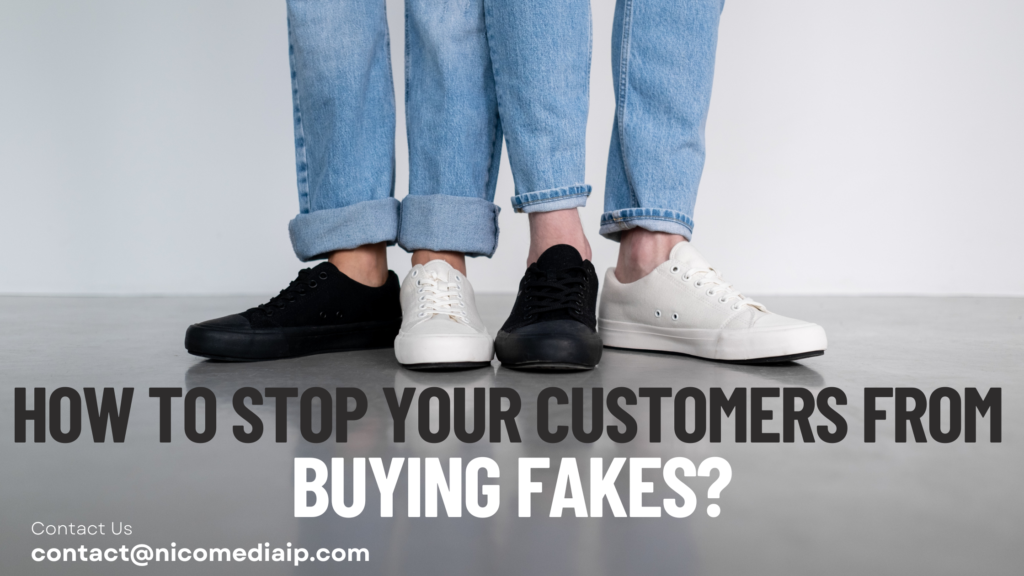A market survey report on counterfeits by Scam Adviser reports that 56% of all global consumers buy counterfeits; however, just 16% admitted to knowingly having bought fakes. The report also suggests that 38 percent bought a fake and then realised it was not the original.
It is a fact that counterfeits have become a market menace; not only are they poaching on mainstream brand revenues, but they also have a thriving economy of their own, lurking in the shadows of the original ideas. While It is not just brands that suffer despite investing in brand protection, it is also consumers who do not know how to differentiate between real and fake. Therefore, it is clear that there are gaps in market awareness; a consumer that seeks to acquire the original is left cheated, and your brand’s reputation is left tarnished. Between this dichotomy and the onus of market and consumer awareness, it is still the duty of the companies to empower their supply chains to enable their customers, as well as consumers, to stay clear of IP thieves.
Recommendations for IP rights owners:
1. Market Awareness Programmes:
When working with online platforms and other marketplace intermediaries, IP rights owners must collaborate with market stakeholders on combating the sale of counterfeits. Therefore, IP owners should be open to the exchange of information that helps customers and intermediaries be aware of their purchasing processes.
For example, brand owners must share
-
Method of Counterfeit Identification:
Brand owners must have a handy counterfeit identification mechanism that shares knowledge about how to identify a fake, from materials, style, designs, etc. alleged to be illegal.
-
Partner Compliances:
In order to identify where the alleged illegal material is located, a compliance framework for business stakeholders should be designed with the assistance of competent IP law firms. This helps in the reporting and tracking of trademark and other IP infringement under applicable jurisdictions and makes it easy for your business partners to authorise a due legal course on the company’s behalf.
2. Active Due Diligence:
Brands should have thorough due diligence processes for their online trading and manufacturing partners, along with tracking mechanisms for repeat offenders. Our experts come across registered IP clients on a daily basis that have not routinely followed up on their due diligence processes, eventually weakening their scope of effective action against repeat offenders.
Besides, payment service providers (PSPs) offering their platforms for marketplaces should incorporate prohibition policies for the purchase and sale of counterfeit goods under applicable law.
3. Invest in Automated Minimum Advertised Price (MAP) Compliance Monitoring:
The minimum advertised price is the ceiling on the price of goods and services set by manufacturers and brands, below which retailers and sellers are not permitted to sell. This ensures that deep discounts do not diminish a brand’s value and cause unfair competition in the market. MAP compliance is not just for prices; the guidelines can also be extended to brand designs, trademark imagery, goods descriptions, and online advertising that adheres to brand identity.
Counterfeit products and grey goods sold through online marketplaces and unauthorised supply chains offer consumers stealth deals that eat into your sales and erode a brand’s value and consumer trust. Therefore, deploying automated MAP compliance helps empower your supply chain and manufacturers to track visible gaps between counterfeit supply and authentic operations. Additionally, it helps build consumer trust so they know which marketplace is trustworthy and which isn’t.
4. Social Media Collaboration:
While there are legal frameworks in place to implicate counterfeiters, at Nicomedia IP, many of our clients battle negative PR due to customer reviews that were unaware they bought a counterfeit or an influencer who unknowingly promoted a counterfeit brand. While it is the new normal to make purchasing decisions on social media, this segment of the market remains unregulated in large parts of the world.
Therefore, we recommend investing in market- and social-influencer-based campaigns and advertising to promote public policing of counterfeits. We encourage brands to set up a report a fake or counterfeit platform so that people can report counterfeit ads or products to their favourite brands and help them clean up the market of dupes.
How Do I Benefit ?
At Nicomedia IP, our industry experts regularly meet troubled clients who seek counterfeit assistance. While it is an established fact that removing fake goods from the market is a capital-intensive task, it is also a fact that controlling counterfeiters and pursuing IP due diligence for your brand costs much less. Therefore, with so much at stake, adequate IP enforcement policies and due diligence services are your best bet. The key benefit you will get out of these steps is
- Early on, you will be able to identify high-risk sellers and products across the globe.
- Reinstate customer trust and loyalty.
- Prevent your market share from being cannibalised.
- Reduce operational and seller compliance costs by almost a third.
- Scale up your compliance network into a robust sales network that will convert unregistered independent sellers into legitimate sellers.
- Boost brand equity
If you found this useful and would like a brand due diligence consultation, we invite you to book your first free consultation with us.



